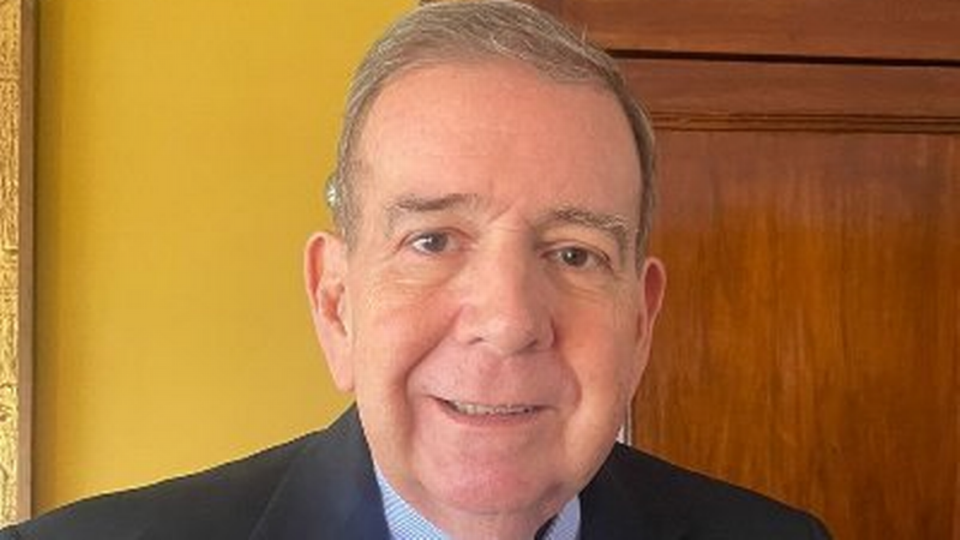Venezuelans head to the polls Sunday in election that could end autocratic socialist rule
- Oops!Something went wrong.Please try again later.
Venezuelans head to the polls on Sunday to choose a president, in what could be one of the most pivotal elections in the nation’s history that could put an end to more than a quarter-century of autocratic socialist rule.
Current leader Nicolas Maduro is backed by a meager 15% to 20% of voters, according to several polls, and should be easily beaten by opposition candidate Edmundo González, who is as much as 40 points ahead,. according to credible independent polling. But the regime has a long track-record of stealing Venezuelan elections, and its iron-grip control over the board that oversees elections, the National Electorate Council, provides opponents with very few tools to keep it from committing fraud.
Given the high stakes surrounding the election, the council could take its time in announcing results, with the first results not being available until the early morning hours Monday. Nearly 21.4 million people are registered to vote, but an estimated 4 million Venezuelans who left the country won’t be able to, except for a few thousands in a handful of countries, excluding the United States.
While the Biden administration has attempted to remain neutral on the prospects of victory for each side, Brian Nichols, assistant secretary of state for Western Hemisphere Affairs confirmed the opposition’s lead in a congressional hearing this week, stressing that the election could pave the way for a democratic transition.
“The key parameter will be voter participation,” he said. “The polls indicate a clear advantage for the opposition. We hope that it will do well if its voters manage to vote.”
Read more: The key things to know about Sunday’s presidential election in Venezuela
In 2019, the U.S. led a group of 50 nations disavowing Maduro’s presidency after concluding that he had stolen the vote the year before. This year’s election came about after a Washington-led pact that required Caracas to launch a comprehensive overhaul of the nation’s electoral system. But Maduro later reneged on the deal, making it nearly impossible for the opposition to keep the electoral council honest.
Yet, the Venezuelan opposition is banking on the enthusiasm surrounding González, 74, and his mentor, opposition leader María Corina Machado, hoping to generate a wave of anti-Maduro votes large enough to overpower any plan the regime might have to steal the election, said Antonio De La Cruz, senior associate with the Americas Program at the Center for Strategic and International Studies in Washington, D.C.

In theory, this could be achieved, but De La Cruz said that being ahead in the polls may not necessarily translate into the same margin of votes, given the regime’s ongoing intimidation campaign that seeks to discourage opposition voters from going to the polls.
De La Cruz, who has been studying the regime for more than a decade, said the control the government has over the electoral council and its chief, top Maduro lieutenant Jorge Rodriguez, would allow it to claim victory for Maduro if Gonzalez’s vote lead is not greater than ten percentage points.
“The regime believes, and this mainly falls on the hands of Jorge Rodríguez, that they can handle the election’s results,” De La Cruz said. The regime is confident enough it can rig the results that it didn’t ban González candidacy, he added. “The opposition, on the other hand, is betting that with a massive participation of voters, [the regime] will not be able to steal the election.”
Oswaldo Ramirez, president of polling firm ORC Consultores, said the latest opinion polls show a greater than initially expected number of voters will likely participate in Sunday’s election.
The government has been trying to disrupt the opposition’s chances of winning the election for months by implementing a vast array of questionable tactics, including a ban on the candidacy of Machado, who had won the opposition’s nomination with more than 92% of the vote in the October 2023 primary.
The Maduro government has also forced a virtual blackout on the Venezuelan opposition through its control of most media outlets, and launched a wave of arrests of critics and opposition members, including volunteers of the Gonzalez campaign.
The tactics include the arbitrary relocation of polling places. In addition, the electoral council made changes to the polling centers in regions where it knows the regime is highly unpopular, restricting the number of voting tables to one, ensuring long lines for likely opposition voters.
Alberto Ray, director of the Florida think-thank Risk Awareness Council, said that members of the electoral council are also likely to slow down operations at each polling station with the same aim.
Another issue: lack of transparency. The regime has drastically limited the presence of international observers allowed into the country to keep an eye on the election process.
In another attempt to stack the desk for Maduro, his name and photo appear an eye-catching 13 times on the ballot, overshadowing the rest of his nine opponents, whose names appear three or four times at most. The reasonis that candidates are allowed to appear on the ballot with their names next to each political group that supports them. Maduro is representing 13 different political parties, which gives his supporters 13 different options to choose from, even though each voter can only vote for him once.
Efforts by the opposition have so far centered on trying to build an army of volunteers to serve as observers at each poll to try to safeguard the vote and the count.

